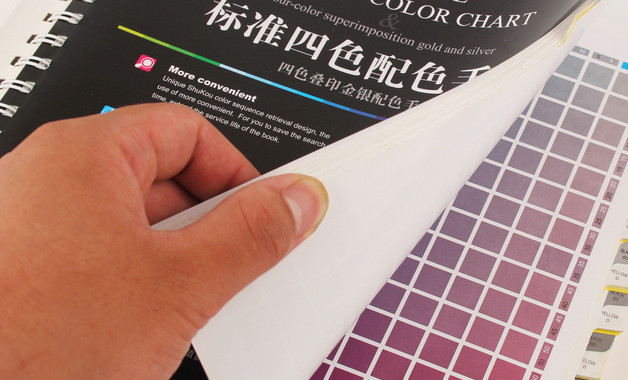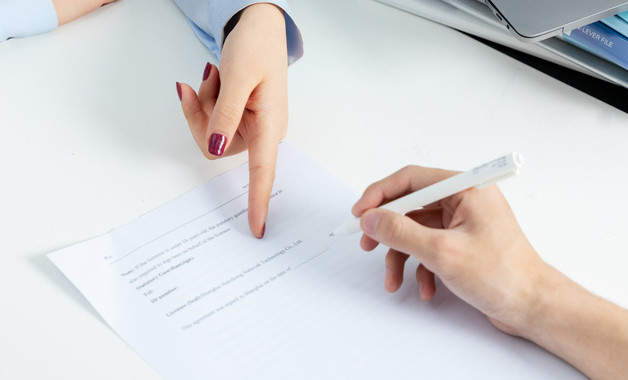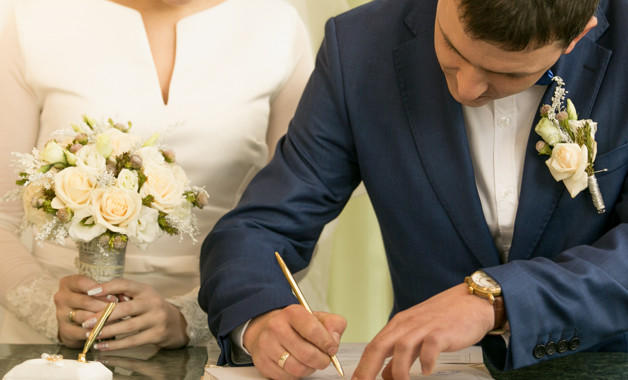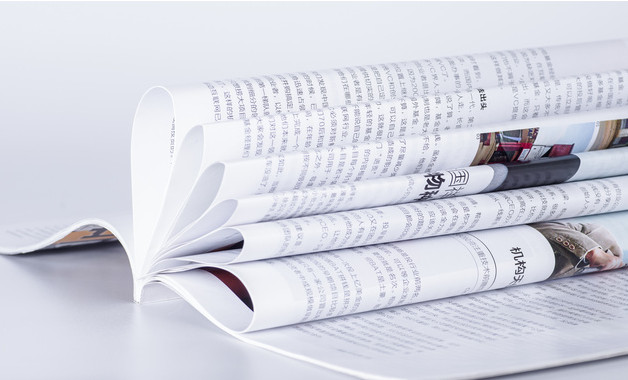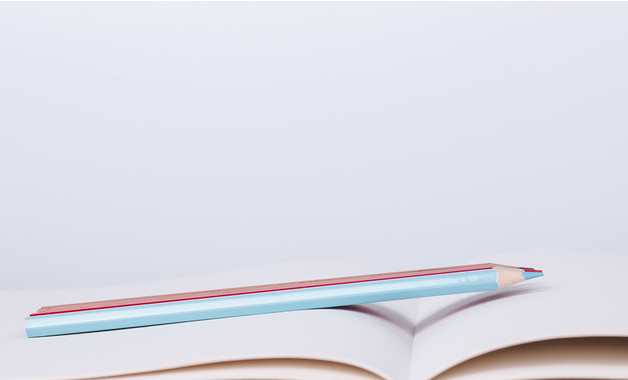- 目录
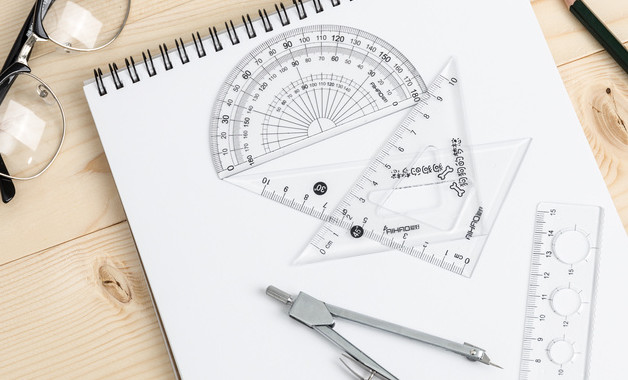
第1篇 美国前总统宣布美国与古巴恢复外交关系英语演讲稿
good morning, everybody. please have a seat.
more than 54 years ago, at the height of the cold war, the united states closed its embassy inhavana. today, i can announce that the united states has agreed to formally re-establishdiplomatic relations with the republic of cuba, and re-open embassies in our respectivecountries. this is a historic step forward in our efforts to normalize relations with the cubangovernment and people, and begin a new chapter with our neighbors in the americas.
when the united states shuttered our embassy in 1961, i don't think anyone e_pected that itwould be more than half a century before it re-opened. after all, our nations are separated byonly 90 miles, and there are deep bonds of family and friendship between our people. but therehave been very real, profound differences between our governments, and sometimes we allowourselves to be trapped by a certain way of doing things.
for the united states, that meant clinging to a policy that was not working. instead ofsupporting democracy and opportunity for the cuban people, our efforts to isolate cubadespite good intentions increasingly had the opposite effect – cementing the status quo andisolating the united states from our neighbors in this hemisphere. the progress that we marktoday is yet another demonstration that we don't have to be imprisoned by the past. whensomething isn't working, we can – and will – change.
last december, i announced that the united states and cuba had decided to take steps tonormalize our relationship. as part of that effort, president raul castro and i directed our teamsto negotiate the re-establishment of embassies. since then, our state department has workedhard with their cuban counterparts to achieve that goal. and later this summer, secretarykerry will travel to havana formally to proudly raise the american flag over our embassy oncemore.
this is not merely symbolic. with this change, we will be able to substantially increase ourcontacts with the cuban people. we'll have more personnel at our embassy. and our diplomatswill have the ability to engage more broadly across the island. that will include the cubangovernment, civil society, and ordinary cubans who are reaching for a better life.
on issues of common interest – like counterterrorism, disaster response, and development –we will find new ways to cooperate with cuba. and i've been clear that we will also continue tohave some very serious differences. that will include america's enduring support for universalvalues, like freedom of speech and assembly, and the ability to access information. and we willnot hesitate to speak out when we see actions that contradict those values.
however, i strongly believe that the best way for america to support our values is throughengagement. that's why we've already taken steps to allow for greater travel, people-to-peopleand commercial ties between the united states and cuba. and we will continue to do so goingforward.
since december, we've already seen enormous enthusiasm for this new approach. leadersacross the americas have e_pressed support for our change in policy; you heard thate_pressed by president dilma rousseff of brazil yesterday. public opinion surveys in both ourcountries show broad support for this engagement. one cuban said, 'i have prepared for thisall my life.' another said that that, 'this is like a shot of o_ygen.' one cuban teacher put itsimply: 'we are neighbors. now we can be friends.'
here in the united states, we've seen that same enthusiasm. there are americans who wantto travel to cuba and american businesses who want to invest in cuba. american colleges anduniversities that want to partner with cuba. above all, americans who want to get to knowtheir neighbors to the south. and through that engagement, we can also help the cubanpeople improve their own lives. one cuban american looked forward to 'reuniting families andopening lines of communications.' another put it bluntly: 'you can't hold the future of cubahostage to what happened in the past.'
and that's what this is about: a choice between the future and the past.
americans and cubans alike are ready to move forward. i believe it's time for congress to dothe same. i've called on congress to take steps to lift the embargo that prevents americansfrom travelling or doing business in cuba. we've already seen members from both parties beginthat work. after all, why should washington stand in the way of our own people?
yes, there are those who want to turn back the clock and double down on a policy of isolation.but it's long past time for us to realize that this approach doesn't work. it hasn't worked for 50years. it shuts america out of cuba's future, and it only makes life worse for the cuban people.
so i'd ask congress to listen to the cuban people. listen to the american people. listen to thewords of a proud cuban american, carlos gutierrez, who recently came out against the policy ofthe past, saying, 'i wonder if the cubans who have to stand in line for the most basicnecessities for hours in the hot havana sun feel that this approach is helpful to them.'
of course, nobody e_pects cuba to be transformed overnight. but i believe that americanengagement – through our embassy, our businesses, and most of all, through our people – isthe best way to advance our interests and support for democracy and human rights. time andagain, america has demonstrated that part of our leadership in the world is our capacity tochange. it's what inspires the world to reach for something better.
a year ago, it might have seemed impossible that the united states would once again beraising our flag, the stars and stripes, over an embassy in havana. this is what change lookslike.
in january of 1961, the year i was born, when president eisenhower announced thetermination of our relations with cuba, he said: it is my hope and my conviction that it is 'inthe not-too-distant future it will be possible for the historic friendship between us once again tofind its reflection in normal relations of every sort.' well, it took a while, but i believe thattime has come. and a better future lies ahead.
thank you very much. and i want to thank some of my team who worked diligently to makethis happen. they're here. they don't always get acknowledged. we're really proud of them.good work.
第2篇 克里国务卿就美国与古巴恢复外交关系英语演讲稿
secretary kerry: good afternoon, everybody. thank you for your patience. inwashington a few moments ago, president obama announced that we had reached anagreement to formally re-establish diplomatic relations with the republic of cuba and that wewill reopen embassies in our respective countries.
later this summer, as the president announced, i will travel to cuba to personally take part inthe formal reopening of our united states embassy in havana. this will mark the resumption ofembassy operations after a period of 54 years. it will also be the first visit by a secretary ofstate to cuba since 1945. the reopening of our embassy, i will tell you, is an important step onthe road to restoring fully normal relations between the united states and cuba. coming aquarter of a century after the end of the cold war, it recognizes the reality of the changedcircumstances, and it will serve to meet a number of practical needs.
the united states and cuba continue to have sharp differences over democracy, human rights,and related issues, but we also have identified areas for cooperation that include lawenforcement, safe transportation, emergency response, environmental protection,telecommunications, and migration. the resumption of full embassy activities will help usengage the cuban government more often and at a higher level, and it will also allow ourdiplomats to interact more frequently, and frankly more broadly and effectively, with thecuban people. in addition, we will better be able to assist americans who travel to the islandnation in order to visit family members or for other purposes.
this transition, this moment in history, is taking place because president obama made apersonal, fundamental decision to change a policy that didn't work and that had been inplace not working for far too long. i believe that's leadership, and i appreciate that leadership.and president castro felt similarly that it was time for a change. both leaders agree thatconcentrating on the issues and possibilities of the future is far more productive thanremaining mired in the past. and i would say as we look at the world today with conflicts thatwe see and even these negotiations taking place here in vienna, it is important for people tounderstand that things can change, that leadership can be effective and can make adifference.
this step has been long overdue, and the response of the international community hasreflected the relief and the welcoming that people all over the world feel for this step. this stepwill advance the president's vision – president obama's vision – of an americas whereresponsibilities are widely shared and where countries combine their strengths to advancecommon interests and values. and we, frankly, also believe that this opening will help to changerelationships in the region as a whole.
i want to thank assistant secretary of state roberta jacobson and her team, our team at thestate department, together with those at the white house who have worked to lead thesediscussions with their cuban counterparts in order to enable the normalization of ourdiplomatic relations and the reopening of our embassies. i also want to thank the governmentof switzerland for the essential role that they have played in serving as the united statesprotecting power in cuba for more than 50 years.
and finally, i want to acknowledge the efforts of many in the united states congress, thecuban american community, civil society, faith-based organizations, the private sector, andothers throughout our country and beyond who have supported the start of a new chapter ofrelations between the united states and cuba. i look forward to meeting again with my cubancounterpart, bruno rodriguez, who i saw most recently in panama, and i also look forward togreeting our embassy personnel and the cuban people in havana later this summer. i lookforward to taking part in the reopening of our united states embassy and in the raising of thestars and stripes over that embassy, and the beginning of a new era of a new relationship withthe people of cuba. thank you all very much.
question: mr. secretary, will american diplomats have free access to talk to people –
secretary kerry: we'll talk about all those details later. i'm not going to take questionsright now, folks, but i appreciate very much your patience and interest.
question: just a few words about the negotiations here today, please.
secretary kerry: well, i've got to take these away for that. (laughter.) we are workingvery, very hard. we have some very difficult issues, but we believe we're making progress andwe're going to continue to work because of that. thank you all.
question: foreign minister zarif said there's no deadline. is there?
secretary kerry: thank you very much.
question: is there a deadline, sir?
secretary kerry: we have our own sense of deadline.
第3篇 英国外交大臣"结束冲突中性暴力全球峰会"上的开幕英语演讲稿
good morning everybody.
angelina jolie and i are delighted to welcome you to the global summit to end se_ual violencein conflict.
we began campaigning, as you probably know, two years ago because we believe the time hascome to end the use of rape in war once and for all, and we believe it can be done.
we are convinced this is an issue of international peace and security, that is central toconflict prevention, that it is fundamental to the advancement of women’s rightseverywhere, and above all that it is a moral issue for our generation.
for centuries the rape of women, girls, men and boys has been a feature of conflict andwarfare.
these crimes have been taking place on a vast scale without many people even being aware ofit.
and today the facts are beginning to emerge for all to see, thanks to courageous survivors,ngos, journalists, doctors and activists, many of whom are already here today.
we know how few of these crimes have ever been punished, but because of the impunity, theycontinue today in syria, south sudan and the central african republic, to name just a fewe_amples.
what would it say about britain or any other nation if, knowing all this, we chose not to act, wechose to do nothing?
as was said of slavery in the 18th century:
now we know the facts, we cannot turn aside.
and so this week, we are bringing together here governments, e_perts, civil society, survivorsand members of the public here at the e_cel centre, in an unprecedented concentration ofeffort and attention on this issue:
today, we are hosting young people from across the world to discuss all the issues and to makerecommendations to the ministers, before the ministers get here.
tomorrow, over 1,000 e_perts and activists will take part in a multitude of events to addressissues from collecting evidence, to protecting children, to tackling se_ual e_ploitation.
and on thursday, more than 117 countries, 70 ministers, several heads of state, many faithleaders from across the world will gather here.
we want this summit to shatter the culture of impunity for se_ual violence, to increasesupport for survivors and to start changing the situation on the ground in the most affectedcountries. there are a whole range of practical actions that we want to achieve:
we will launch an international protocol that sets out how to document and investigatese_ual violence, so that those on the ground have the best tools to collect information andevidence to bring perpetrators to justice.
we will ask countries to strengthen their laws so that there are no safe havens for thoseresponsible for warzone se_ual violence, we will also urge all countries to train soldiers andpeace-keepers to prevent and respond to se_ual violence more effectively.
we want countries to commit new funds for tackling se_ual violence in conflict-affectedcountries like somalia and the democratic republic of congo, to do more to protect womenand girls in humanitarian emergencies, and to increase their support for human rightsdefenders who campaign for justice and help for survivors.
and i am pleased to announce this morning that the uk will pledge a further £6 million tosupport survivors of se_ual violence in conflict – a further £6 million to help them rebuildtheir lives and rebuild communities.
but governments alone cannot end se_ual violence in conflict, so this is much more than justa meeting of ministers.
we also want to help achieve a change in attitudes all over the world to these crimes – and youare part of changing those attitudes.
we want to shift the stigma from survivors onto the perpetrators of these crimes, so that they– not the innocent victims – bear the stigma.
we want to encourage men to speak out, we want to encourage men to speak out – to agreewith us that it is only a weak or inadequate man who abuses women. it is not, it’s not a sign ofstrength, it is the ultimate weakness and shame.
we want to draw attention to the hidden survivors of se_ual violence, all those who have feltunable to speak out and who have suffered in silence including men and boys.
we want people around the world to understand the scale of the problem and the urgent needfor action, to recognise the damage it does to international peace and security and to bemobilised and inspired to work within their societies and with us to bear down on this terribleinjustice.
so each hour for the ne_t 84 hours a british diplomatic post somewhere in the world will beholding an event to mirror what we are doing here in london. this event is round the clock allround the world. and i hope you will help us ensure that over the ne_t three and a half daysthat this summit reaches the whole world.
we encourage anyone who cares about this issue to visit and to take part with us here: to seethe multitude of e_hibitions, performances and films that are on show, and to join in thediscussions here physically and on social media.
i believe that foreign policy is no longer the sole preserve of governments, that we all need towork together in new ways to tackle global problems and this summit is an e_ample of ourdetermination as the united kingdom to champion that.
angelina and i want to thank all the organisations, performers, activists and individuals heretoday for your inspiring work and your contributions to this effort, and we will urge all theministers to visit and see the e_hibitions.
there are some people who say that these problems are so vast that our efforts will be in vain,but they fail to understand what governments, international organisations, civil society andpublic opinion can achieve when we all pull in the same direction.
from the abolition of slavery to the adoption of the arms trade treaty, we have shown that theinternational community can tackle vast global problems in a way that was once consideredto be impossible.
there is power in numbers and if we unite behind this cause we can create an unstoppablemomentum and consign this vile abuse to history.
with every injustice in the world, with every injustice in the world, a moment comes when thetide turns, when the pressure of public opinion and political will reaches a tipping point.
we have a remarkable opportunity over these ne_t few days to build the momentumneeded to tip the world past that point of no return, so that through hard work andcommitment over the coming years we can remove warzone rape from the world’s arsenal ofcruelty.
we can’t do this overnight, we can’t do it overnight. for the british government, and forangelina and for me personally, this summit is not the end of the road for our work, it is inmany ways just the beginning.
over the ne_t few years we must go on to show that what we agree here in london can make abig practical difference.
so in opening the fringe and the e_hibitions this morning, we hope you will all work with us andbe part of this historic endeavour.
i am grateful to you all for being here.
thank you very much indeed.
第4篇 老外交官谈英语演讲之道
段津简介:
段津先生1953年毕业于北京外国语学院,被派往朝鲜开城中国人民志愿军停战谈判代表团任翻译,属于新中国第一代英语翻译。曾为陈毅、邓小平、李先念、郭沫若等老一代国家领导人会见外宾时当翻译,先后担任中国驻加拿大大使馆新闻参赞、中国驻温哥华总领事、外交部新闻司副司长兼外交部发言人、中国驻澳大利亚悉尼总领事、中国人民外交学会副会长。
在长年的外交工作中,段津先生积累了丰富的英语口译、笔译经验,擅长用英语演讲,著有《如何用英语作精彩演讲》一书(世界知识出版社出版)。
段津对英语演讲的总体认识:
演讲艺术:中西方差距明显
我们的社会政治情况与国外不太一样。美国人从小学开始就要竞选这个、竞选那个,比如俱乐部经理、学生会主席,跟政治竞选差不多,所以他们的讲演发达,在讲演培训方面也开展得比较好。在西方国家,特别是英语国家更加重视演讲。中国在这方面滞后了一点儿,但是现在讲演的风气开始兴盛,这很是令人喜悦。随着我们对外经贸、外交关系的拓展,学英语讲英语的形势更加喜人。我去年跟一批中学生专门进行英语讲演讲座,他们怀着很大的兴趣听我讲。对外经贸大学也曾经请我去讲过怎么样对外国人进行沟通。最近华北地区的大学生讲演比赛,我去当了裁判。
英文演讲和中文演讲相比有哪些区别?
段津:实际上一样,关键在于了解演讲对象,减少冗余信息。
中文演讲和英文演讲实际上是一样的,关键是看你演讲的对象。不管是用中文还是用英文演讲,首先你要对自己的听众要有一个很好的了解。在国外讲演,讲演超过半个小时,你就要考虑这个时间是不是快到了,绝不要超过50分钟。而且应该留出一半以上的时间让听众来提问题。在中国情况就有所不同,因为过去的习惯,有的时候往往邀请方要求我讲三个小时。实际上现在中国人也愿意听短话,特别是没有什么信息量的套话说法,
我们的演讲如何运用语言魅力打动听众?适应听众思维习惯?
段津:在讲演当中,语言文字的运用很重要。第一,语言表达纯熟清晰。第二,以对方习惯的方式、喜欢的方式来讲。第三,要有内容。当听众通过赞扬英文的办法来赞扬你时,例如观众对你说articulate,这是表示你讲得非常清晰,你听到这样的评语之后,实际上就说明你的内容已经打动了人。
根据我的经验,适应听众思维习惯,在讲演一定要注意观众的反映。我的讲话就是半个小时,必要的时候缩短20分钟。我看大家睁着眼睛很安安静静的在听,我就多讲几句。讲话不要长,讲20分钟就可以打住了,然后让人家提问题,这个10分钟是有效的10分钟,你可以根据他们提的问题,不完全是切中这个问题放大放开讲。
有了一份好的演讲稿之后,在发表演讲过程中,有人认为这是在装模作样,您怎么看待这个问题?
段津:我自己感觉到,演讲绝不是什么拿姿做态,装模作样。作为外交官代表国家讲话,这个国家已经个性化在你的身上。我觉得不要去演戏。过去讲修辞,讲动作,讲声调,后来从美国开始,慢慢就变成一种谈话式的讲话。我们在国外演讲也是。
我到悉尼去担任总领事,上任第一个活动正好碰到圣诞节,新南威尔士大学组织一次欢迎会,大家都很随便,都站在那儿。我先在站在他们的面前,我是一个陌生人,对他们来讲,我不代表个人,我不是段津,我是中国,是一个机构。但为了制造一种亲切感,我就要把机构化成个人,从个人讲起。所以我一开始就讲:“几天以前,我和我的夫人告别了北京的四室一厅的寓所,跟我上海80多岁的老父亲通了电话,跟躺在病床上的哥哥也通了电话,来到了温暖如春的悉尼,沐浴在夏天的阳光底下,跟大家一块过圣诞,这是一个很大的变化,但是我非常高兴、非常兴奋。”几分钟的演讲,让人家对新上任的总领事有一个了解。中国慢慢变成你个人,这个个人是很亲切自然的,没有什么价值的,随便聊天。但是最后我还是谈了国际形势,还谈了国内形势,对海外学子的希望。
您的外语怎么样学的?怎么样才能将自己的所学准确生动的表达,运用到演讲里去?
段津:学习也没有什么捷径可走。
1,慢慢积累,不要放弃。基础一定要打好,特别是语法的基础。我在学校学的时间不长,但是基础非常稳固。光介词的练习就不知道做了几百几千,冠词的练习,什么时候用the,什么时候不用,这些基础都非常牢固;
2,多看、多读、多模仿。英语开始就是模仿,注意外国人的表达方法。我当时在外交学会上班时有机会接触美国、澳大利亚、加拿大、新西兰广大地区的各阶层人士。另一方面我非常注意阅读。当时美国的四本周刊我都看,《新闻周刊》、《时代》等等,而且是越看不明白的东西越看;
3,要记录。写有用的短语、词句,要把它记下来,而且要注意比较外国人和中国不同的表达法。举个例子,中国人讲话的时候,谢谢大家对我的热烈欢迎,很平实的。英语国家的人讲这么一句话,“thank you for the warm hospitality that makes me feel so welcome。”意思就是“谢谢你们的好客,这个好客使我感觉到自己如此受欢迎”。假如你没有看过英文、听过英文,你绝对不能想到这么表达。所以你就要学,就要听。我们不能说我学的时候学了,自己讲得时候还照中文讲,不能这样,要用英文来思维,越是觉得有点怪怪的,越是要学的。时间久而久之,你就不会讲中式英文。
在被邀请演讲但又不很清楚对方的具体要求时如何进行?内容上什么样的安排会收到好的效果?
段津:这种情况我会首先要进行调查研究。是谁邀请的,邀请我去跟谁讲,再根据听众的特点,自己做一个估计。
比如说我在澳大利亚时,收到一个请帖,就是澳大利亚悉尼大学。他们学生毕业典礼一千多人,让我作为唯一的外国嘉宾讲话。我的听众都是大学生、大学教授,18岁到20多岁。然后我再打电话给他们学校的组织讲演的校方询问他们希望我讲些什么东西,他给我的答复是随便,但是时间控制在10分钟。这样的话,我就有了几个信息:一个是他为什么不请美国人,请中国人,说明他对中国感兴趣。所以我根本上可以确定,我要讲讲中国的事情。中国情况;另一个是年轻学生加教授;再一个就是时间要短一点儿。这个场合是一个毕业典礼,根据这四个特点,我就准备出了一个讲稿。
具体进行的过程大概是这样的。我记得有一个英国作家讲过,你可以试一下谈别人,比如说你跟人家谈话时,你讲他的事情,他听两个小时都不腻,所以既要讲自己,也要讲别人。根据这样一个原则,我就在这个讲稿里头采取一种对比的办法。
我一上来就是澳大利亚和中国差别很大,共同点也很多,夏天我们都出汗,冬天我们都会冻得发抖,你吃饭用刀叉,我吃饭用筷子。比如说我们中国看问题是大中小,写地址是先写国名,再写省,再写城市,再写街道,再写门牌号,然后再写姓,然后写名。外国人先写名,再写姓,你的门牌号码、楼的号码、马路、城市、省份,最后是国家。整个是大颠倒。你们是由我及人,我们是由远及近。通过这些文化的对比,政治制度的对比。比如你们是议会民主,我们是半殖民地半封建的基础上建立起来的人民民主的国家,这个场合就避免人民民主专政,因为几句话讲不清楚。从文化、政治、经济对比。再就是物产,中国有多少动物、多少植物。一下子跳跃性的,一对比,共同点我们都希望和平,都希望过好日子。我们两国关系好了,对我们两国人民有什么好处。
最后,毕竟是青年学生,我引用了毛主席的一首诗,毛主席在50年代莫斯科对中国留学生讲的一段话,世界上是你们的,也是我们的,但归根结底是你们的,你们年轻人朝气蓬勃,正在兴旺时期,希望寄托在你们身上。这个话一讲,达到高潮,他们喜欢听。用伟大导师的话来打动他们。我是稿子念下来。关键是内容,内容好的话,语音语调也好,这样下来以后,那些小家伙戴着博士帽,拉着我一块照相,气氛非常热烈。
演讲是一门艺术,好的英文演讲比赛究竟用什么样的标准来评判?
段津:我先讲讲外国的经验,1996年我在澳大利亚悉尼一家图书馆的新书陈列架上看到了《成功的秘诀》一书,书中有一节谈到了演说的12项注意,我随手抄录了下来。这演讲要素12项是presenting skills(演说技巧)
1.know your topic(知道你要讲什么题目)
2.know your audience(了解你的听众)
3.know your start and stop times,as well as who else is on(知道你开始和停止的时间以及除你之外还有谁要讲话)
4.know what you want people to do differently and tell them(对你所说的和人们所做的有什么不同,心中要有数,并让听众知道)
5.make major points.(写下你的讲话要点)
6.check all your equipment,sound,lighting and seating arrangements.(检查你的器材、音响、灯光和座位)
7.ask someone you trust and respect to constructively critique you.(请一个你所信任和尊敬的人对你的讲稿提出建设性的批评和意见)
8.rela_ before you go on.(演讲前要放松)
9.practise,practise,practise.(练习、练习,再练习)
10.remember that even if you miss a bit or forget a couple of lines,nobody knows e_cept you.(记住即或你漏掉一点或忘掉几行,除了你自己,别人是不会发现的)
11.omit telling jokes unless you are already a good joke-teller or plan to get better.(收起你想讲的笑话,除非你已经擅长讲笑话或者计划在这方面有所提高)
12.have fun(要有趣味)
上述12项提示是国外人士从大量实践中总结出来的有用经验,可供我们借鉴。根据我自己的实践经验,我想着重提出5点:
1. 明确通过演讲要传递什么信息;
2. 了解听众的特点和要求;
3. 准备讲稿或讲话要点;
4. 语言要求清晰、简练、优美、生动、形象、有频率和感召力;
5. 临场陈述要举止稳重大方,语言语调准确
中国人用英语演讲时,应该注意哪些表达不会让对方误解?哪些是中西方都能够理解的?
段津:我们讲话,不管是对哪个国家的人士不要指手划脚。当我们谈自己的情况,不要谈的太满,应该留有余地,既谈成绩,也谈困难。另外,对人家的事情不要指指点点。还有一件事情要注意,作为一个使节,不要评论第三国的事情,最安全的就是我谈我自己的情况,我的体会,我的经验,然后是我们的共同点。
中国加入wto,北京获得2022年奥运会举办权,越来越多的中国人意识到英语的重要,他们需要通过英语表达自己,在北京更是掀起了学习英语的热潮,英语培训班也随之铺天盖地。您对培训班的培训有什么见解?您对广大爱学生的网友们,尤其是爱学英语的网友们,有什么建议?
段津:首先我觉得现在掀起一个全民学英语的高潮是一个好事情。现在学英语的途径非常多,但有一种做法我不同意,那就是把英文的发音按照中文字写出来。比如书,book,他用中文写成“布克”。日本人在这方面吃了亏,他就用日文拼英文,结果发音就不太好。
至于训练班,要真正的训练。现在国内有些学习班,你教了钱,你上课不上课都给你发一个证书,这样是不行的。另外也不能通过几级考试就一定具备水平。因为考试本身不能够真正的、百分之百的反映一个人对某一门学问掌握的程度。学习归根结底,训练班也好,正规学校也好,最后是靠自己,靠自己自学为主。现在有好多工具书,不懂的就请教字典。
第5篇 老外交官谈英语演讲之道公众演讲
段津简介:
段津先生1953年毕业于北京外国语学院,被派往朝鲜开城中国人民志愿军停战谈判代表团任翻译,属于新中国第一代英语翻译。曾为陈毅、邓小平、李先念、郭沫若等老一代国家领导人会见外宾时当翻译,先后担任中国驻加拿大大使馆新闻参赞、中国驻温哥华总领事、外交部新闻司副司长兼外交部发言人、中国驻澳大利亚悉尼总领事、中国人民外交学会副会长。
在长年的外交工作中,段津先生积累了丰富的英语口译、笔译经验,擅长用英语演讲,著有《如何用英语作精彩演讲》一书(世界知识出版社出版)。
段津对英语演讲的总体认识:
演讲艺术:中西方差距明显
我们的社会政治情况与国外不太一样。美国人从小学开始就要竞选这个、竞选那个,比如俱乐部经理、学生会主席,跟政治竞选差不多,所以他们的讲演发达,在讲演培训方面也开展得比较好。在西方国家,特别是英语国家更加重视演讲。中国在这方面滞后了一点儿,但是现在讲演的风气开始兴盛,这很是令人喜悦。随着我们对外经贸、外交关系的拓展,学英语讲英语的形势更加喜人。我去年跟一批中学生专门进行英语讲演讲座,他们怀着很大的兴趣听我讲。对外经贸大学也曾经请我去讲过怎么样对外国人进行沟通。最近华北地区的大学生讲演比赛,我去当了裁判。
英文演讲和中文演讲相比有哪些区别?
段津:实际上一样,关键在于了解演讲对象,减少冗余信息。
中文演讲和英文演讲实际上是一样的,关键是看你演讲的对象。不管是用中文还是用英文演讲,首先你要对自己的听众要有一个很好的了解。在国外讲演,讲演超过半个小时,你就要考虑这个时间是不是快到了,绝不要超过50分钟。而且应该留出一半以上的时间让听众来提问题。在中国情况就有所不同,因为过去的习惯,有的时候往往邀请方要求我讲三个小时。实际上现在中国人也愿意听短话,特别是没有什么信息量的套话说法,
我们的演讲如何运用语言魅力打动听众?适应听众思维习惯?
段津:在讲演当中,语言文字的运用很重要。第一,语言表达纯熟清晰。第二,以对方习惯的方式、喜欢的方式来讲。第三,要有内容。当听众通过赞扬英文的办法来赞扬你时,例如观众对你说articulate,这是表示你讲得非常清晰,你听到这样的评语之后,实际上就说明你的内容已经打动了人。
根据我的经验,适应听众思维习惯,在讲演一定要注意观众的反映。我的讲话就是半个小时,必要的时候缩短20分钟。我看大家睁着眼睛很安安静静的在听,我就多讲几句。讲话不要长,讲20分钟就可以打住了,然后让人家提问题,这个10分钟是有效的10分钟,你可以根据他们提的问题,不完全是切中这个问题放大放开讲。
有了一份好的演讲稿之后,在发表演讲过程中,有人认为这是在装模作样,您怎么看待这个问题?
段津:我自己感觉到,演讲绝不是什么拿姿做态,装模作样。作为外交官代表国家讲话,这个国家已经个性化在你的身上。我觉得不要去演戏。过去讲修辞,讲动作,讲声调,后来从美国开始,慢慢就变成一种谈话式的讲话。我们在国外演讲也是。
我到悉尼去担任总领事,上任第一个活动正好碰到圣诞节,新南威尔士大学组织一次欢迎会,大家都很随便,都站在那儿。我先在站在他们的面前,我是一个陌生人,对他们来讲,我不代表个人,我不是段津,我是中国,是一个机构。但为了制造一种亲切感,我就要把机构化成个人,从个人讲起。所以我一开始就讲:“几天以前,我和我的夫人告别了北京的四室一厅的寓所,跟我上海80多岁的老父亲通了电话,跟躺在病床上的哥哥也通了电话,来到了温暖如春的悉尼,沐浴在夏天的阳光底下,跟大家一块过圣诞,这是一个很大的变化,但是我非常高兴、非常兴奋。”几分钟的演讲,让人家对新上任的总领事有一个了解。中国慢慢变成你个人,这个个人是很亲切自然的,没有什么价值的,随便聊天。但是最后我还是谈了国际形势,还谈了国内形势,对海外学子的希望。
您的外语怎么样学的?怎么样才能将自己的所学准确生动的表达,运用到演讲里去?
段津:学习也没有什么捷径可走。
1,慢慢积累,不要放弃。基础一定要打好,特别是语法的基础。我在学校学的时间不长,但是基础非常稳固。光介词的练习就不知道做了几百几千,冠词的练习,什么时候用the,什么时候不用,这些基础都非常牢固;
2,多看、多读、多模仿。英语开始就是模仿,注意外国人的表达方法。我当时在外交学会上班时有机会接触美国、澳大利亚、加拿大、新西兰广大地区的各阶层人士。另一方面我非常注意阅读。当时美国的四本周刊我都看,《新闻周刊》、《时代》等等,而且是越看不明白的东西越看;
3,要记录。写有用的短语、词句,要把它记下来,而且要注意比较外国人和中国不同的表达法。举个例子,中国人讲话的时候,谢谢大家对我的热烈欢迎,很平实的。英语国家的人讲这么一句话,“thank you for the warm hospitality that makes me feel so welcome。”意思就是“谢谢你们的好客,这个好客使我感觉到自己如此受欢迎”。假如你没有看过英文、听过英文,你绝对不能想到这么表达。所以你就要学,就要听。我们不能说我学的时候学了,自己讲得时候还照中文讲,不能这样,要用英文来思维,越是觉得有点怪怪的,越是要学的。时间久而久之,你就不会讲中式英文。
在被邀请演讲但又不很清楚对方的具体要求时如何进行?内容上什么样的安排会收到好的效果?
段津:这种情
“老外交官谈英语演讲之道”
况我会首先要进行调查研究。是谁邀请的,邀请我去跟谁讲,再根据听众的特点,自己做一个估计。
比如说我在澳大利亚时,收到一个请帖,就是澳大利亚悉尼大学。他们学生毕业典礼一千多人,让我作为唯一的外国嘉宾讲话。我的听众都是大学生、大学教授,18岁到20多岁。然后我再打电话给他们学校的组织讲演的校方询问他们希望我讲些什么东西,他给我的答复是随便,但是时间控制在10分钟。这样的话,我就有了几个信息:一个是他为什么不请美国人,请中国人,说明他对中国感兴趣。所以我根本上可以确定,我要讲讲中国的事情。中国情况;另一个是年轻学生加教授;再一个就是时间要短一点儿。这个场合是一个毕业典礼,根据这四个特点,我就准备出了一个讲稿。
具体进行的过程大概是这样的。我记得有一个英国作家讲过,你可以试一下谈别人,比如说你跟人家谈话时,你讲他的事情,他听两个小时都不腻,所以既要讲自己,也要讲别人。根据这样一个原则,我就在这个讲稿里头采取一种对比的办法。
我一上来就是澳大利亚和中国差别很大,共同点也很多,夏天我们都出汗,冬天我们都会冻得发抖,你吃饭用刀叉,我吃饭用筷子。比如说我们中国看问题是大中小,写地址是先写国名,再写省,再写城市,再写街道,再写门牌号,然后再写姓,然后写名。外国人先写名,再写姓,你的门牌号码、楼的号码、马路、城市、省份,最后是国家。整个是大颠倒。你们是由我及人,我们是由远及近。通过这些文化的对比,政治制度的对比。比如你们是议会民主,我们是半殖民地半封建的基础上建立起来的人民民主的国家,这个场合就避免人民民主专政,因为几句话讲不清楚。从文化、政治、经济对比。再就是物产,中国有多少动物、多少植物。一下子跳跃性的,一对比,共同点我们


